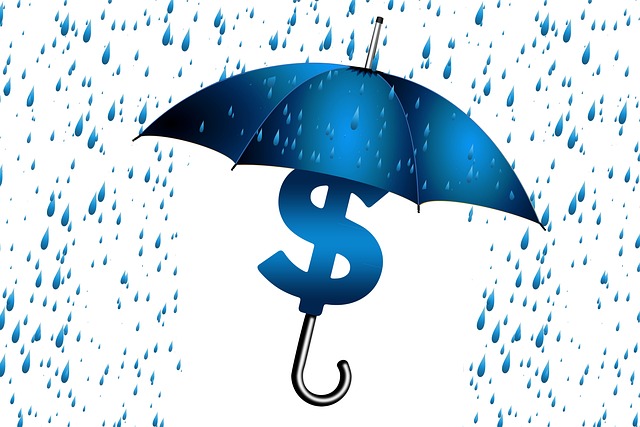Business owners need to understand their unique risks and coverage needs when selecting insurance. Identify industry-specific hazards, company size, location, and activities to choose appropriate policies like General Liability, Property Insurance, Workers' Compensation, Professional Liability, and Business Interruption. Compare quotes from multiple providers, understanding terms and limits, while avoiding solely price-focused decisions. Work with brokers to tailor coverage to specific business goals and vulnerabilities. Regularly review and update policies as the business evolves to ensure ongoing protection against changing risks and responsibilities.
In today’s unpredictable business landscape, securing comprehensive insurance is not just advisable but essential. Full-service insurance for business owners offers a tailored safety net against unforeseen events. This article guides you through every step of choosing the right policy. From understanding your unique business needs and identifying risks to navigating various policy types, assessing impact factors, and customizing coverage, we’ll show you how to select ideal business insurance. Regular reviews ensure continuous protection, adapting to your evolving requirements.
Understanding Your Business Needs: Identifying Risks and Coverage Gaps

Understanding your business needs is a crucial step in choosing the right insurance policy. As a business owner, it’s essential to identify potential risks and coverage gaps that could impact your operations. Start by evaluating your industry’s unique hazards, such as natural disasters, cyberattacks, or workplace accidents. Consider your company’s size, location, and specific activities to determine the most relevant types of insurance. For instance, a tech startup may require comprehensive cyber liability coverage, while a construction firm should focus on workers’ compensation and general liability protection.
By thoroughly assessing these factors, you can make informed decisions when selecting business insurance. This process involves researching different policy options, comparing coverage limits, and understanding the terms and exclusions of each plan. It’s also beneficial to consult industry experts or insurance brokers who can guide you in navigating the complexities of business insurance, ensuring you choose a policy that offers adequate protection tailored to your unique needs.
Types of Business Insurance Policies: A Comprehensive Overview

Business owners often find themselves navigating a complex web of insurance options, each designed to protect against specific risks. Understanding these various policies is crucial when it comes to How to Choose the Right Business Insurance. There are several key types to consider:
1. General Liability Insurance: This policy protects against claims of bodily injury or property damage on your business premises. It’s essential for any business that interacts with customers, employees, or other businesses, covering legal fees and potential damages awarded in court.
2. Property Insurance: Designed to safeguard the physical assets of a business, including buildings, equipment, inventory, and supplies. Policies can vary widely based on specific risks like fire, theft, natural disasters, and vandalism.
3. Workers’ Compensation Insurance: A legal requirement in many jurisdictions, this insurance covers medical expenses and lost wages for employees injured or ill on the job. It also protects business owners from potential lawsuits related to workplace injuries.
4. Professional Liability Insurance (Errors & Omissions): Critical for businesses providing professional services, this policy safeguards against claims of negligence or errors in service that result in financial loss for clients.
5. Business Interruption Insurance: This type of insurance offers financial protection during periods when your business must close due to a covered event, helping to maintain operations and revenue streams until you can reopen.
Assessing Risk Factors: What Impacts Your Premium Costs?

When assessing risk factors for business insurance, several key elements come into play and significantly impact your premium costs. Understanding these factors is crucial in how to choose the right business insurance to ensure adequate protection at a reasonable price. The primary risks considered include the nature of your industry, location, size of your business, and historical claims data.
For instance, businesses operating in high-risk industries such as construction or transportation often face higher premiums due to the potential for more frequent and costly accidents or damage. Similarly, geographical location matters; areas prone to natural disasters like floods, earthquakes, or hurricanes may require specialized coverage at a premium to account for these unique risks. Additionally, the size of your business fleet or property can influence costs, as larger operations naturally present broader exposure. Historical claims data plays a significant role too—a company with a track record of frequent or substantial claims will likely face higher rates.
Comparison Shopping: How to Evaluate Quotes Effectively

When shopping for business insurance, comparison shopping is a crucial step in choosing the right coverage at an affordable price. Start by gathering quotes from multiple insurance providers, ensuring that each quote includes comparable levels of coverage and deductibles. Don’t be tempted to solely focus on the cheapest option; instead, analyze the fine print and understand what’s included and excluded. Look for providers who offer transparent policies and excellent customer service.
Effective evaluation involves cross-referencing policy features, understanding coverage limits, and examining the reputation of insurance companies. Check online reviews and seek recommendations from fellow business owners to gauge an insurer’s reliability. Remember, the best value isn’t always the lowest price; it’s finding comprehensive protection that aligns with your business needs at a reasonable cost.
Customizing Your Policy: Tailoring Coverage for Specific Business Requirements

When considering full-service insurance for your business, it’s crucial to understand that one-size-fits-all policies won’t cut it. Every business is unique, with its own set of risks and requirements. That’s why customizing your policy is a vital step in How to Choose the Right Business Insurance. Assess your specific needs, from property coverage for your physical location to liability protection against legal claims. Don’t forget to factor in industry-specific risks; whether you run a construction site or a food service establishment, there are unique challenges that require tailored solutions.
By working closely with an insurance broker, you can design a policy that aligns perfectly with your business’s goals and vulnerabilities. This customization ensures that when the unexpected occurs, your coverage is robust enough to protect your assets, cover expenses, and maintain your operations’ continuity. Remember, a well-crafted policy should adapt as your business grows and evolves, providing peace of mind and financial security every step of the way.
Regular Review and Updates: Ensuring Continuous Protection

Choosing the right business insurance is a crucial step in safeguarding your venture and its future. However, it’s not a one-time task but requires regular review and updates to remain effective. Insurance policies should evolve with your business, adapting to changes in operations, market conditions, and legal landscapes.
Regularly assess your coverage to ensure it aligns with current risks and responsibilities. This proactive approach helps identify gaps or redundancies in your policy, ensuring continuous protection for your business. Stay informed about industry trends, new regulations, and emerging threats to make informed decisions when updating your insurance plans.
